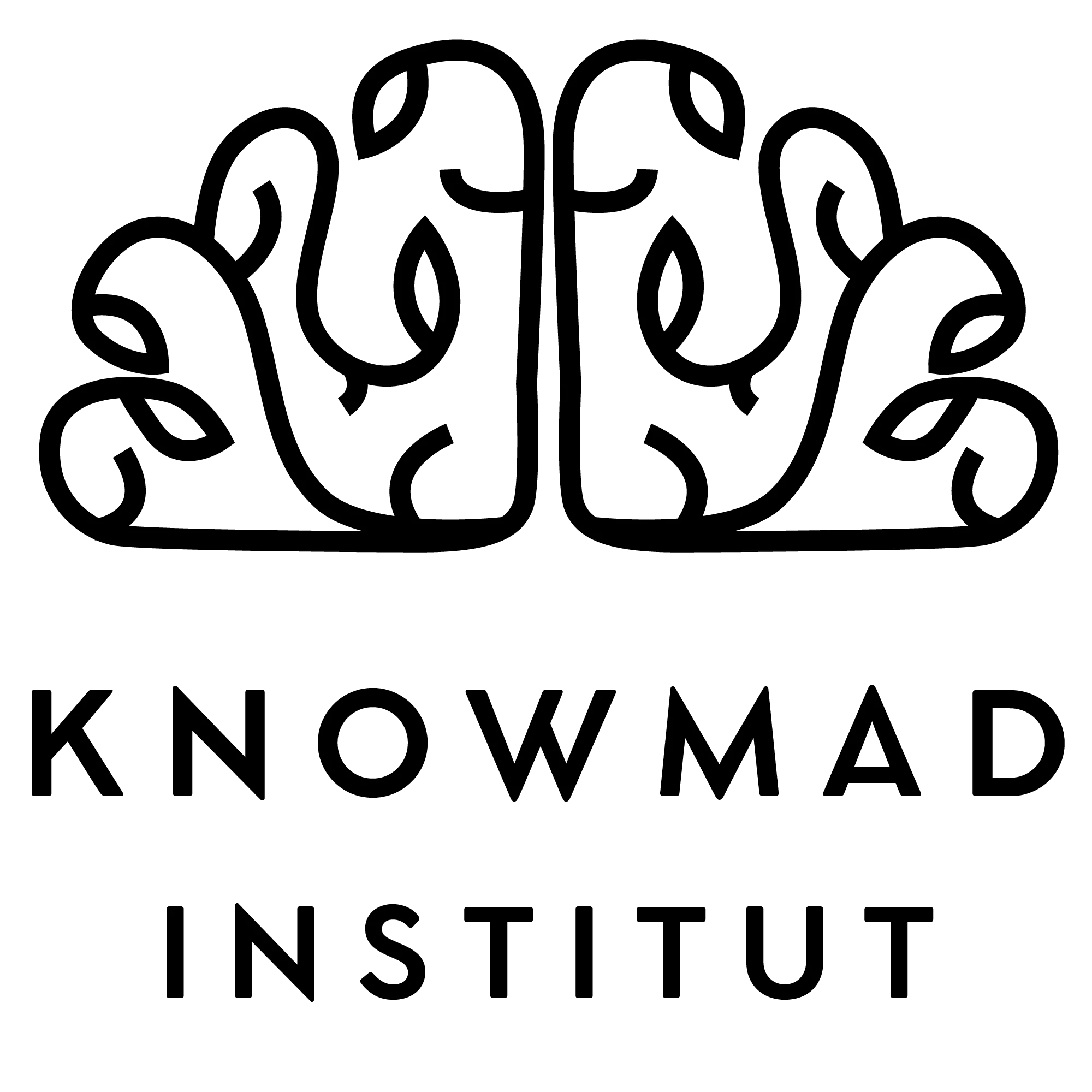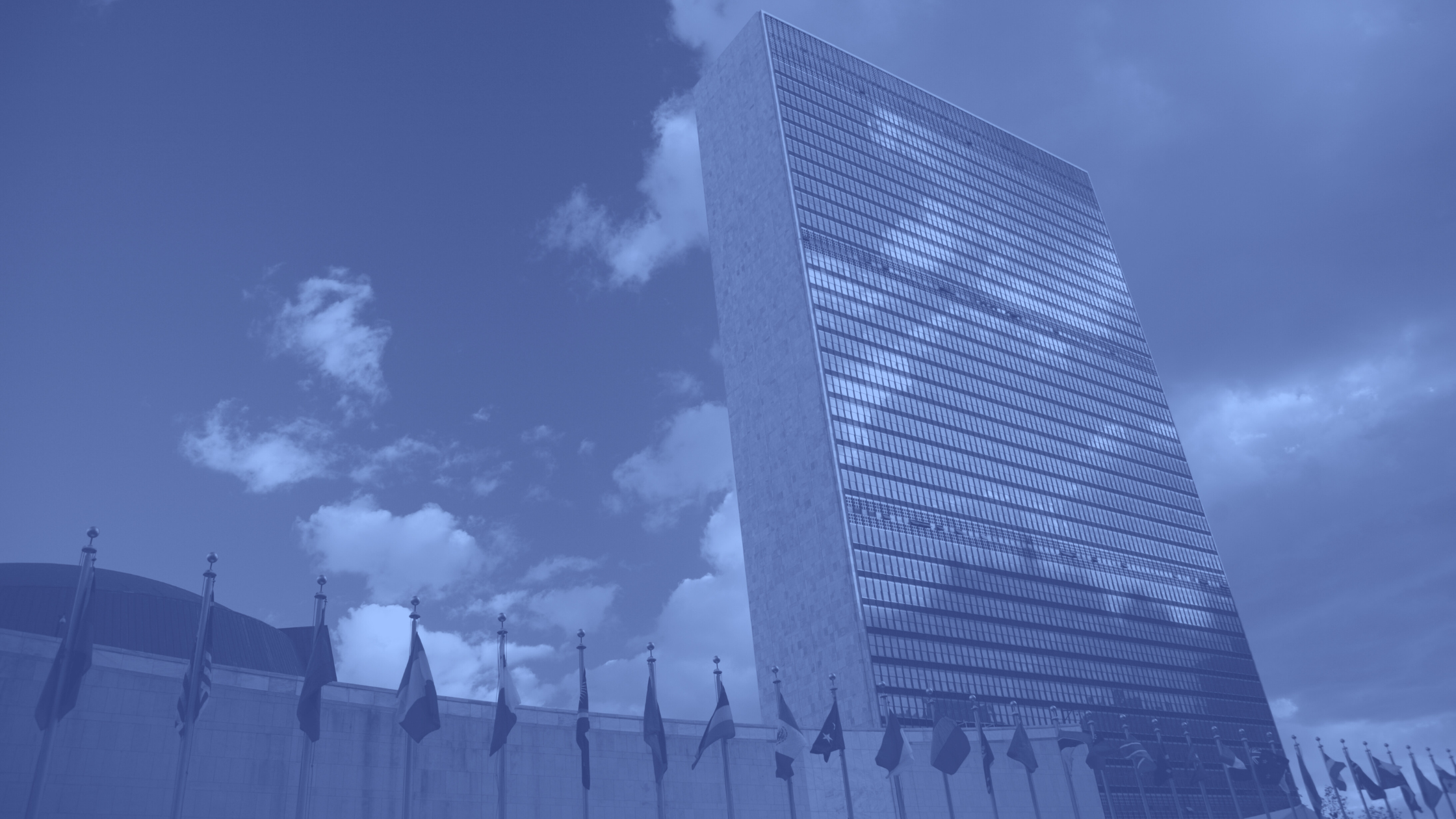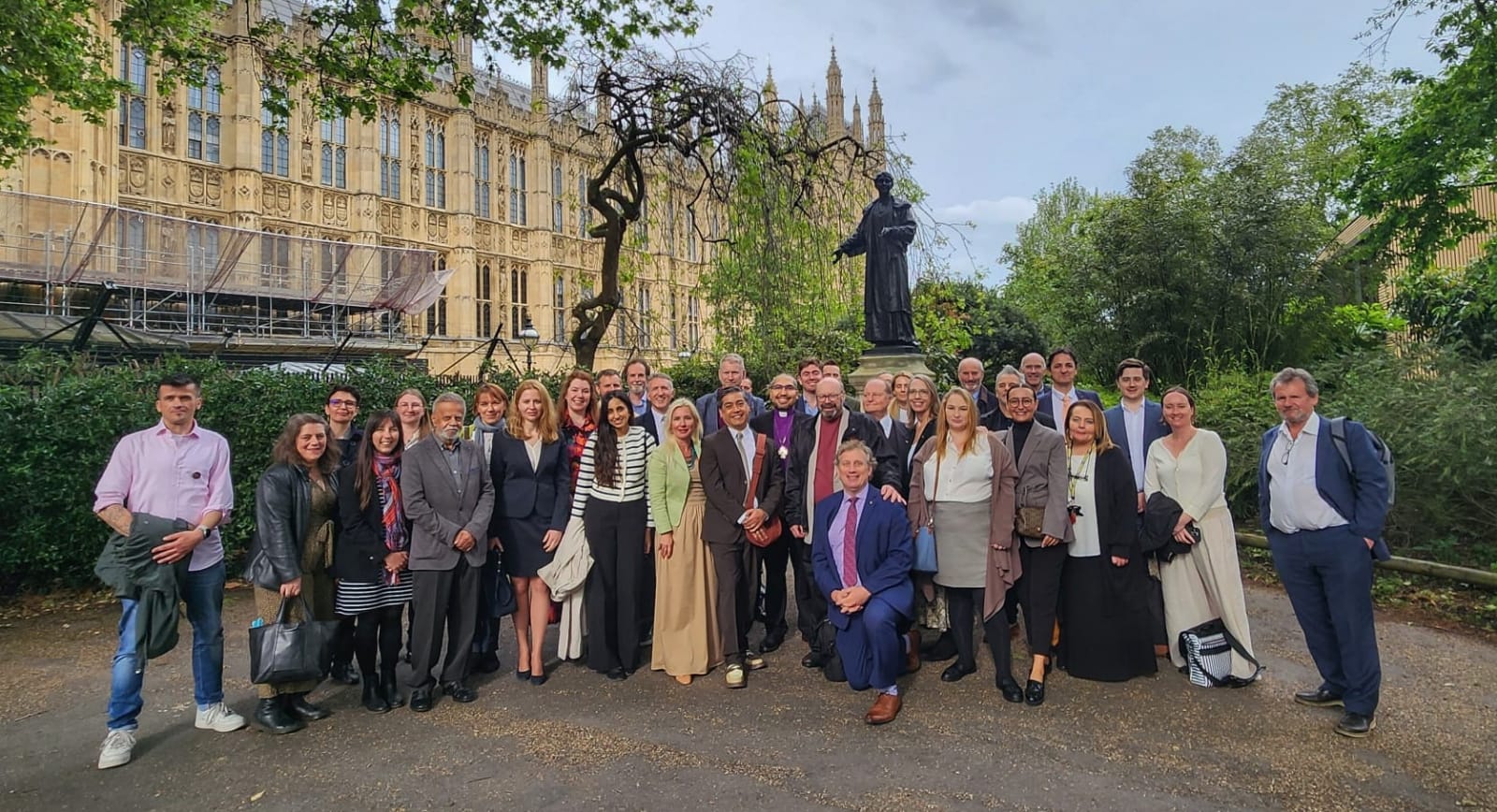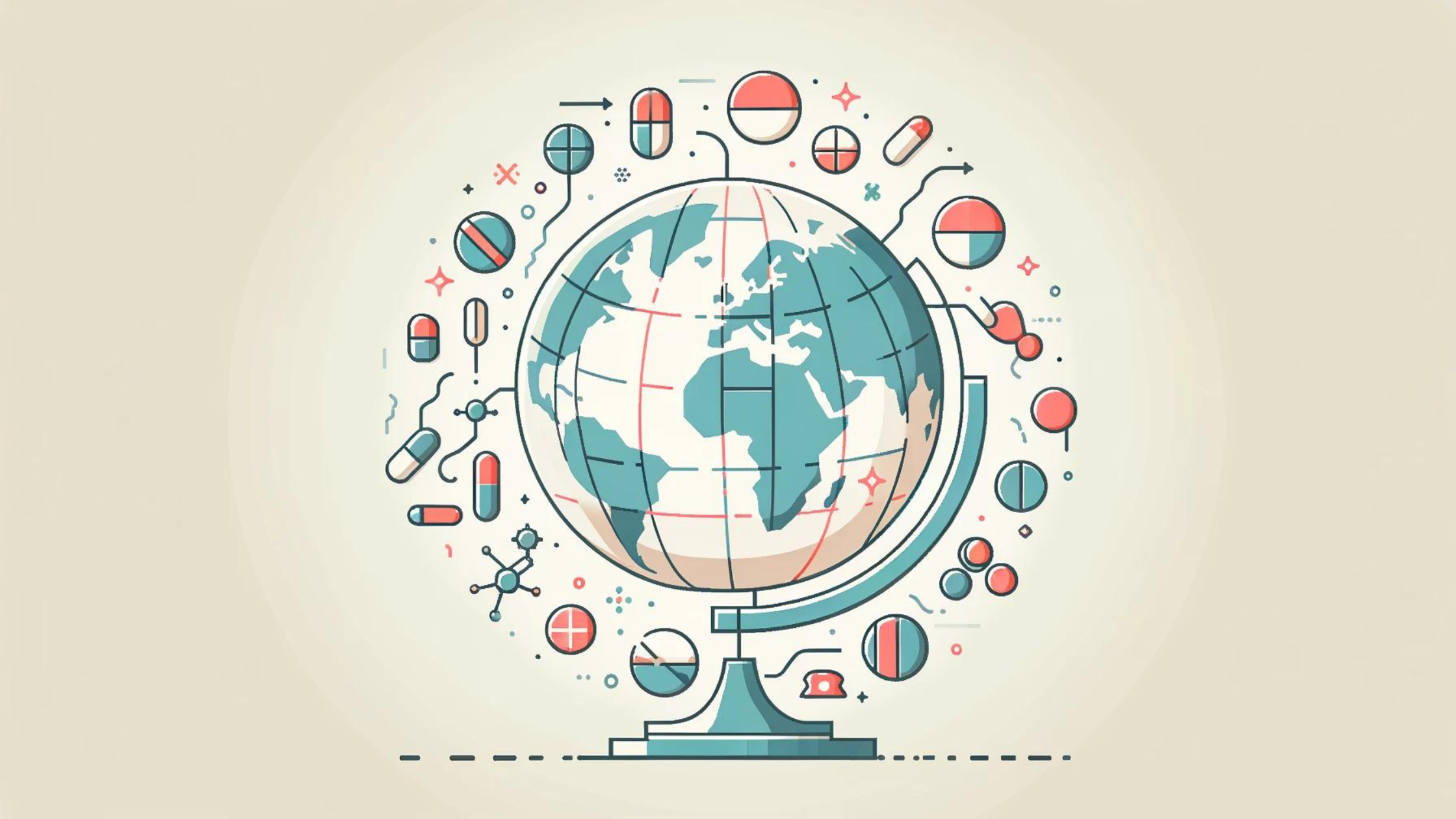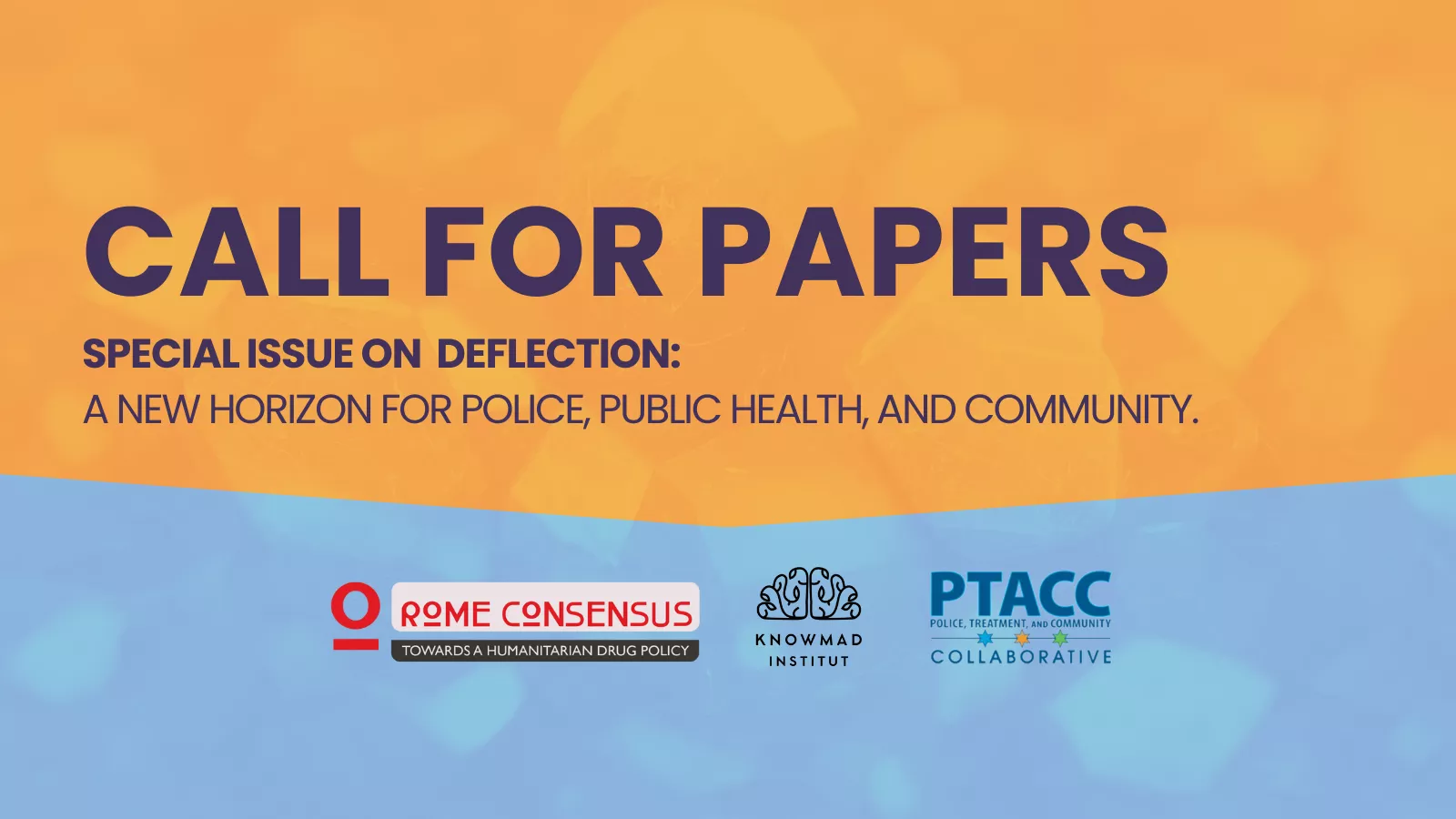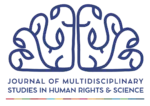Joint Statement of Knowmad Institut & Nierika AC for public consultation:
WHO Guideline on ensuring balanced national policies for access and safe use of medicines
[aux_button label=”DOWNLOAD PDF” size=”medium” icon_align=”?Over” color_name=”dark-gray” border=”” style=”” icon=”pen” link=”https://knowmadinstitut.org/wp-content/uploads/2020/02/Joint-Statement-of-Knowmad-Institut-Nierika-AC-for-public-consultation_-WHO-Guideline-on-ensuring-balanced-national-policies-for-access-and-safe-use-of-medicines.pdf” target=”_blank”]
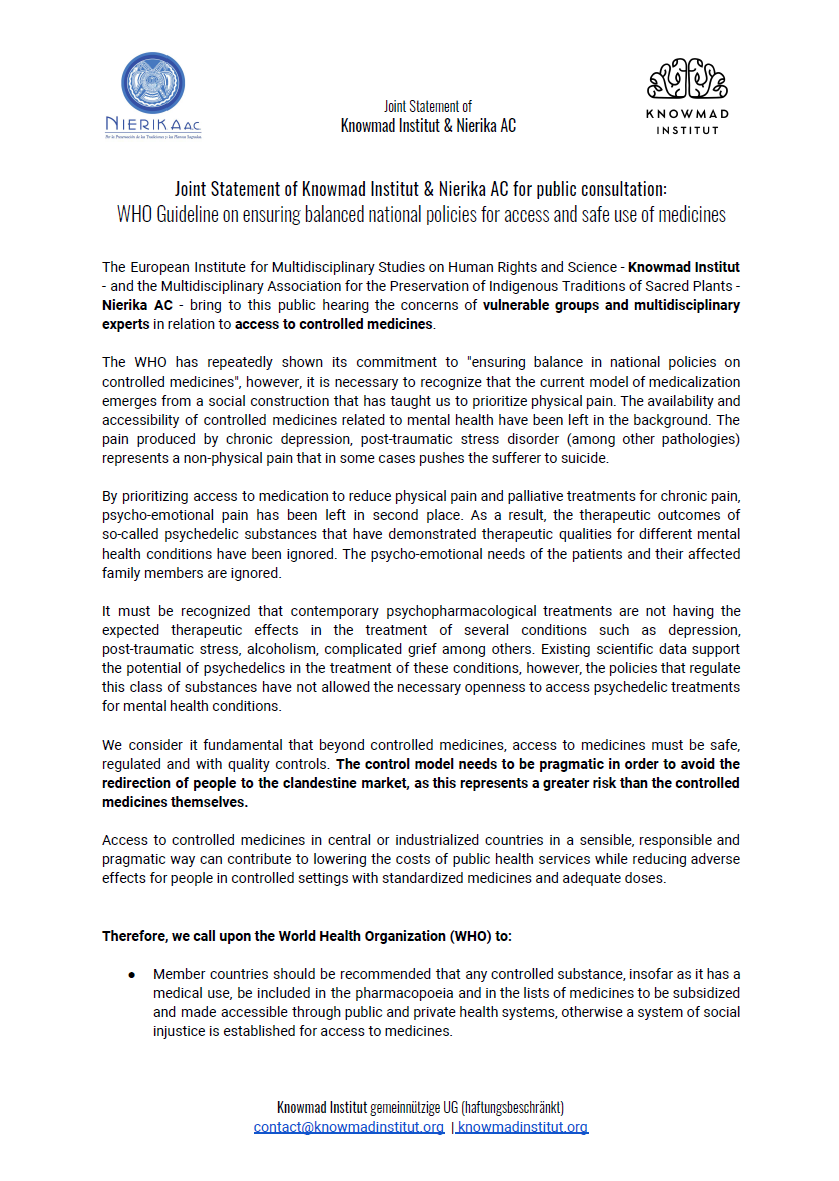
The WHO has repeatedly shown its commitment to “ensuring balance in national policies on controlled medicines”, however, it is necessary to recognize that the current model of medicalization emerges from a social construction that has taught us to prioritize physical pain. The availability and accessibility of controlled medicines related to mental health have been left in the background. The pain produced by chronic depression, post-traumatic stress disorder (among other pathologies) represents a non-physical pain that in some cases pushes the sufferer to suicide.
By prioritizing access to medication to reduce physical pain and palliative treatments for chronic pain, psycho-emotional pain has been left in second place. As a result, the therapeutic outcomes of so-called psychedelic substances that have demonstrated therapeutic qualities for different mental health conditions have been ignored. The psycho-emotional needs of the patients and their affected family members are ignored.
It must be recognized that contemporary psychopharmacological treatments are not having the expected therapeutic effects in the treatment of several conditions such as depression, post-traumatic stress, alcoholism, complicated grief among others. Existing scientific data support the potential of psychedelics in the treatment of these conditions, however, the policies that regulate this class of substances have not allowed the necessary openness to access psychedelic treatments for mental health conditions.
We consider it fundamental that beyond controlled medicines, access to medicines must be safe, regulated and with quality controls. The control model needs to be pragmatic in order to avoid the redirection of people to the clandestine market, as this represents a greater risk than the controlled medicines themselves.
Access to controlled medicines in central or industrialized countries in a sensible, responsible and pragmatic way can contribute to lowering the costs of public health services while reducing adverse effects for people in controlled settings with standardized medicines and adequate doses.
Therefore, we call upon the World Health Organization (WHO) to:
- Member countries should be recommended that any controlled substance, insofar as it has a medical use, be included in the pharmacopoeia and in the lists of medicines to be subsidized and made accessible through public and private health systems, otherwise a system of social injustice is established for access to medicines.
- Considering the scientific evidence that psychedelic science has provided in the last decade, we believe that it is an opportune time for the WHO, in conformity with its guidelines aimed at not restricting, interrupting or denying access to controlled opioids, to facilitate and promote research, access and based on the “principle of compassion” to allow expanded access to medical and psychological treatments with psychedelics for populations suffering from emotional pain.
- Promote academic dialogue between WHO and different scientific research institutions on the re-evaluation of the therapeutic potential of so-called psychedelic substances.
- To balance its actions and recognize the contribution of traditional medicine, herbal medicines and the therapeutic activity of native peoples in mental health services, to facilitate access and promote a regulatory model for plants and mushrooms containing illegalized substances linked to the relief of psychological pain. It is important to note that scientific evidence indicates that the risks associated with the use of these medicines are minimal.
- That the list of controlled medications is devoid of prejudice and includes psychotomimetic products and those that alter perception, state of consciousness or generate significant dependence, but not other psychotropics, such as antidepressants that do not generate such alterations.
- That increased attention be given to the rates of “suicidal intentionality” and “suicidal thoughts”, which, compared to the rates of consummated suicides, that are mostly reflected as results of mental conditions such as depression or anxiety, this rates can taking into account social conditions such as frustrations, difficulties in facing what reality proposes and which have their basis in symbolic and structural violence that allows the circle to continue over and over again.
It is time to become aware of the contexts and elements involved in order to find alternative ways to the current model of control of certain controlled medicines and to deepen through public policies the standards and public services of mental health.
Finally, in accordance with the Sustainable Development Goals, we are committed to working with the WHO and governmental entities to contribute to the development of policies, regulations, and best practices based on fact and science, in order to promote access to safe, effective, and affordable medicines for the treatment of pain and to prevent their misuse and the harm they may cause.
[aux_button label=”DOWNLOAD PDF” size=”medium” icon_align=”?Over” color_name=”dark-gray” border=”” style=”” icon=”pen” link=”https://knowmadinstitut.org/wp-content/uploads/2020/02/Joint-Statement-of-Knowmad-Institut-Nierika-AC-for-public-consultation_-WHO-Guideline-on-ensuring-balanced-national-policies-for-access-and-safe-use-of-medicines.pdf” target=”_blank”]
